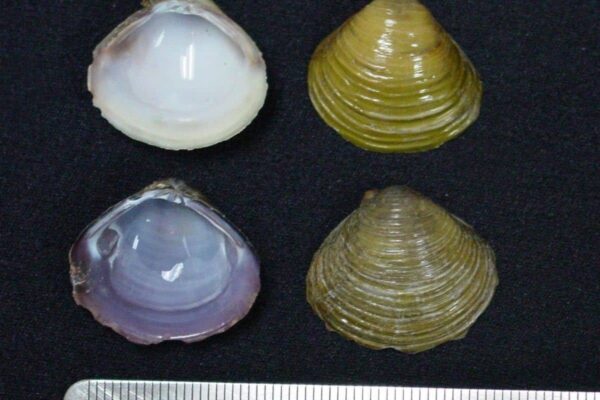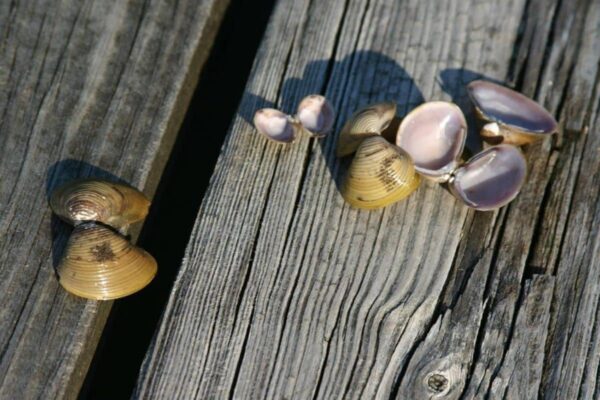Asian clam
About This Species
Asian clams (Golden clam, Good luck clam) are native to Asia, Australia and Africa. It can survive in a variety of freshwater habitats, and can tolerate water temperatures between 2-30 °C. They thrive in areas with moving water, where food and oxygen are continuously passed over their bodies. Thus, they may pose a risk to water treatment facilities, irrigation canals, and dams by clogging intake and outflow pipes. By feeding on plankton, they alter food webs, which can lead to toxic algal blooms. Asian clam is designated as a Provincial Containment species by the BC Provincial Priority Invasive Species List.
Asian clams are hermaphrodites and can self-fertilize, meaning the introduction of a single individual can lead to the establishment of an entire population. They only reproduce when water temperatures are above 16 °C, which limits their spread. However, the range of suitable habitats for this species may expand due to climate change.
How to Identify
Asian clams are typically 2.5 cm wide when mature. Their shells have deep, concentric ridges and are brown or tan in colour.

Take Action
Prevention is the best approach.

Clean, Drain, Dry
Learn about best practices
The Clean Drain Dry program empowers you to help reduce the spread of invasive plants and organisms to BC waters by following the clean, drain, dry procedure on all watercraft and equipment.
REPORT TO PROTECT BC’S BIODIVERSITY

Use the app
Observe and report to protect BC’s biodiversity

Report through this website
Use our form to tell us what you’re seeing and where.



